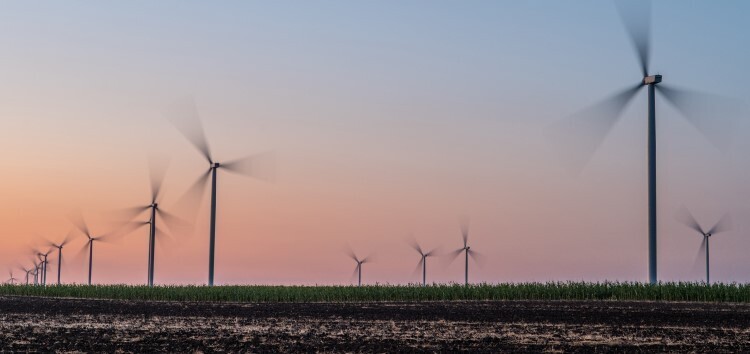
Water Conservation: 7 Simple Ways to Save Water at Home and in Your Business
Water is one of our most precious resources, yet it is often wasted without thought. ...

Serbia got a €107.7 million syndicated loan for its largest windfarm Čibuk 1 with a maximum capacity of 158MW.
The windfarm has started operations, generating sustainable and emissions-free power to supply 113,000 households and reducing CO2 emissions by 370,000 tons per year.
Čibuk 1 covers a site of 37 km2 in Mramorak, 50km from the capital Belgrade, and comprises 57 wind turbines. It is the second wind project in Serbia supported by the EBRD and follows the successful completion of the Kovačica windfarm earlier this month.
The €300 million project was developed with financial support provided by European Bank for Reconstruction and Development (EBRD) and the International Finance Corporation (IFC). The EBRD arranged a €107.7 million syndicated loan, of which €55 million was syndicated to Erste Bank, the Green for Growth Fund, UniCredit and Banca Intesa under an A/B loan structure.
In parallel, the World Bank’s IFC provided €107.7 million, partially through its Managed Co-Lending Portfolio Program and partially through syndicated B loans.
Čibuk 1 was developed by Vetroelektrane Balkana, a Serbian company wholly-owned by Tesla Wind, a joint venture between Masdar, the Abu Dhabi Future Energy Company, the Taaleri SolarWind I fund (managed by Finnish renewable energy infrastructure fund manager and developer Taaleri Energia) and the German development finance institution DEG – Deutsche Investitions- und Entwicklungsgesellschaft mbH.
The inauguration of the €300 million project was attended by Aleksandar Vučić, President of the Republic of Serbia, Aleksandar Antić, Serbia’s Minister of Mining and Energy, Thani Ahmed Al Zeyoudi, UAE Minister of Climate Change and Environment, Mubarak Saeed Al Dhaheri, UAE Ambassador to Serbia, and Khaled Al Qubaisi, CEO of Aerospace, Renewables & ICT for Mubadala.
Zsuzsanna Hargitai, EBRD Regional Director, Western Balkans, said: “Investment in renewable energy is at the core of our energy strategy and we are very pleased to see Serbia making such good progress in renewables and to have been able to support these efforts.”
Mohamed Al Ramahi, CEO of Masdar, a subsidiary of Mubadala Investment Company and one of the world’s leading renewable energy companies, said: “In collaboration with the government of Serbia, our fellow shareholders in Tesla Wind, the lenders, contractors and our many other partners, Masdar is proud to successfully deliver the largest utility-scale commercial wind project in the Western Balkans. Čibuk 1 is not only a bold statement as to Serbia’s long-term renewable energy ambitions and its commitment to modernize its power sector, but also an investment in Serbia’s energy security. Together, we have delivered a truly outstanding project, a marvel of engineering that has created jobs and delivered lasting improvements in infrastructure. More than that, we have invested in the foundation of Serbia’s renewable energy sector, helping to create a legacy that will support the development of future projects.”
Čibuk 1 will contribute to Serbia’s goal of raising the share of energy consumption from renewable sources to 27 percent by 2020, while reducing its dependence on coal-fired power generation.
اترك تعليقا